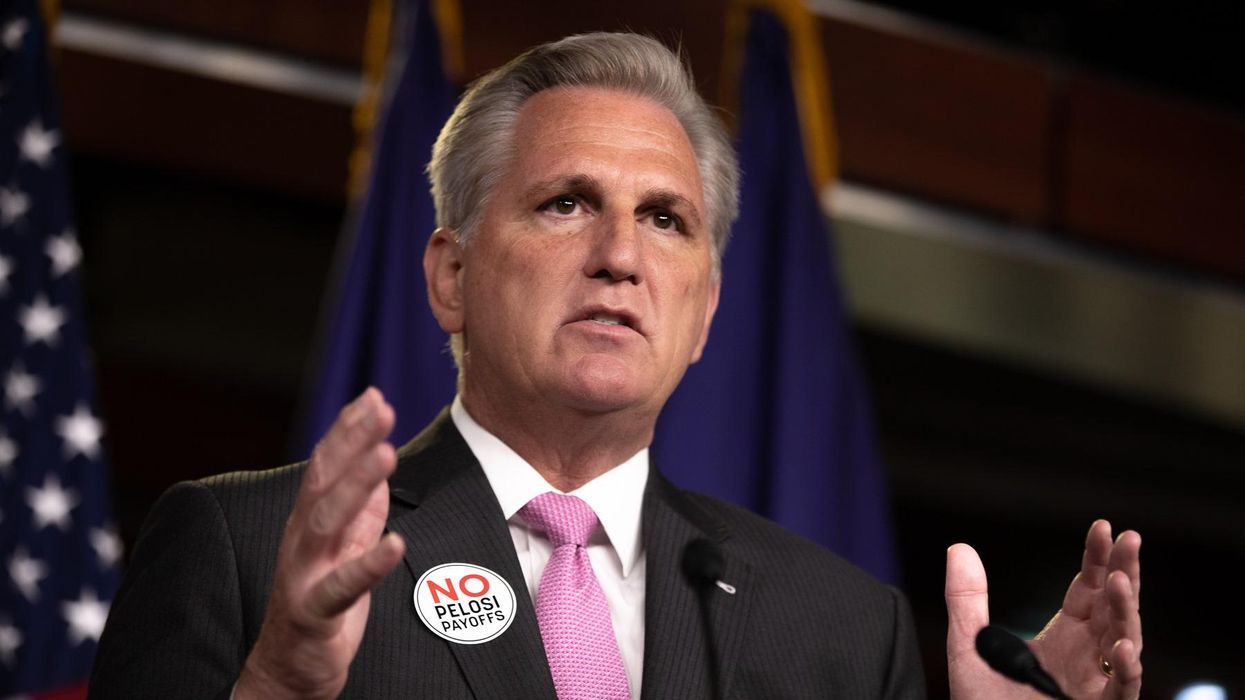Why So-Called Tough Guys Are Always Punching Down
Reprinted with permission from Roll Call
The late great stand-up, actor and occasional philosopher George Carlin was known to cross the lines of what polite society would call good taste, but he himself drew a few lines when it came to his theory of funny.
Asked by Larry King in 1990 about popular bad-boy comedian Andrew Dice Clay, Carlin, while defending Clay's right to say whatever, said, "His targets are underdogs. And comedy has traditionally picked on people in power, people who abuse their power." Clay's core audience, Carlin said, were "young white males" threatened by Clay's targets, assertive women and immigrants among them.
Rule-breaker Eddie Murphy came to look back on his younger self, the brash young man dressed in leather, and cringe, especially at his jokes about women and relationships, he told The New York Times in 2019. "I was a young guy processing a broken heart, you know, kind of an …" — well, you get the idea.
In today's cruel world, it's not just comedians punching down, reaching for the "easy" joke, setting new and low standards, though a few still revel in their ability to shock (see Michael Che and his approving nods to vile remarks about the sexual abuse of young female athletes).
Many who should know better have given up seeking a more perfect union, one that welcomes all. They see advantage in aggression and, unlike Murphy, don't feel one bit embarrassed when reflecting on their words and actions.
In fact, the "punching" is the point, and it's always aimed squarely at those perceived as less powerful, from poor and disabled Americans who want to vote without jumping through unnecessary hoops and facing intimidation from poll watchers to transgender children eager to play sports to Black and brown students who would like their role in the country's history to be taught without accommodation for those too fragile to hear the truth.
House Minority Leader Kevin McCarthy's recent, threatening words involved actual hitting, in this case the speaker of the House and third in line for the presidency, Nancy Pelosi. At a Republican fundraiser in Nashville, Tennessee over the weekend, when presented with an oversize gavel, McCarthy said: "I want you to watch Nancy Pelosi hand me that gavel. It will be hard not to hit her with it." According to audio, the crowd of about 1,400 laughed.
McCarthy can almost taste the speakership, with voting restrictions in the states and new gerrymandered districts being teed up, and the Supreme Court and a Senate stalled on voting legislation helping to clear the way. He's already referring to Pelosi as a lame duck. For him and his followers, the angry rhetoric isn't something to be ashamed of; it's dessert, a way to rile up the base and rake in the cash.
While not approving of the violent January 6 insurrectionists who stormed the Capitol, McCarthy tried to block an investigation of the attack and said he ignored the testimony of brutalized police officers before the select committee that's proceeding without him. McCarthy seems to have forgotten his reported initial pleas to then-President Donald Trump to rein in his supporters that day.
Does he remember or care, as he's piling on, that the rioters particularly targeted Pelosi, defiled her office and called out "Where's Nancy?" in their best impression of Jack Nicholson's demented howl in The Shining?
The trickle-down effect that Republican politicians are so fond of when it comes to justifying tax cuts for the wealthy is certainly true when it comes to this style of "tough guy" posturing, as January 6 proved, though you can bet those rioters would not have been so free employing their weaponized flagpoles and bear spray if they were confronting each officer one-on-one.
The same goes for the bullies who don't need masks, but want to fight businesses trying to safely staff and operate their shops and restaurants, or the anti-vaxxers who show little concern for children too young to get vaccinated or neighbors who because of age or medical complications are at risk.
It's predictable that the tough guys and gals, so anxious to pick a fight — verbal and otherwise — offer a tsunami of excuses when called to account. That's usually the case with bullies.
The January 6 lawbreakers are blaming Trump, QAnon and the heat of the moment; some Republicans unbelievably blame Pelosi herself for the violence that targeted her. Professional comic Che says he was hacked, and amateur comic McCarthy claims he was "obviously joking" when he taunted the speaker.
I'd respect them all a lot more if they'd just own their perfidy. Instead, they do their damage with a wink before backing off, managing to look both mean and weak.
When I spoke with House Majority Whip James E. Clyburn last week on my Equal Time podcast, he didn't have the time or desire to insult anyone. As someone who in the 1960s was in the middle of the fight for the Voting Rights Act, he would rather talk about the current battle to protect the rights promised in that landmark legislation — and to save democracy itself.
Convincing those who don't believe it's their fight won't be easy. But Clyburn has the optimism of someone who, in the face of real danger, helped take on the segregated South. In "punching up" at a system designed to hold "powerless" Americans down, he and all those who changed history showed a toughness that a gavel-toting McCarthy and company can only dream about.
Mary C. Curtis has worked at The New York Times, The Baltimore Sun and The Charlotte Observer, and was national correspondent for Politics Daily. She is a senior facilitator with The OpEd Project. Follow her on Twitter @mcurtisnc3.









